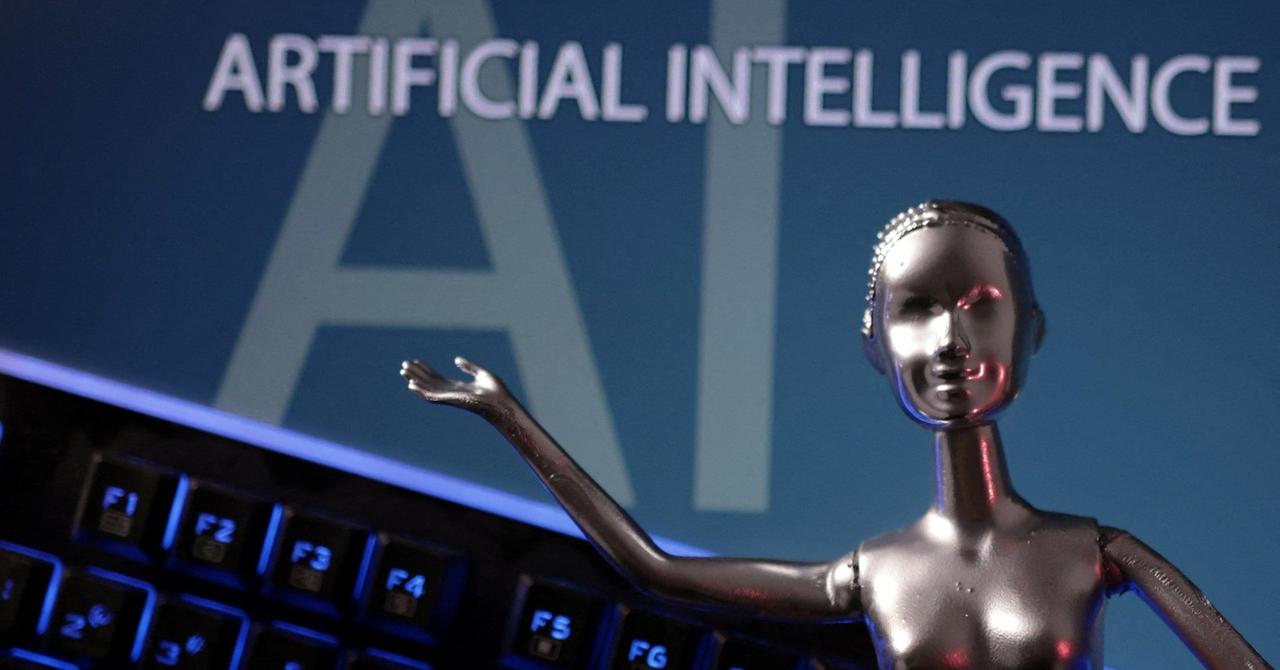Brookfield Predicts $7 Trillion Investment Needed for AI Infrastructure Growth
2 Sources
2 Sources
[1]
Brookfield Predicts $7 Trillion of Capital Needed for AI Growth
There's about $7 trillion of investment needed to finance the rapid growth of artificial intelligence, according to Hadley Peer Marshall, chief financial officer at Brookfield Asset Management. Brookfield is among a number of big private capital players looking to have a central role in the buildout of AI infrastructure. Ares Management Corp. aims to raise more than $8 billion of equity fundraising to back data centers in the near term across London, Japan and Brazil, it told investors in a presentation last week.
[2]
AI growth demands $7 trillion of spending globally, says Brookfield
The rapid growth of artificial intelligence will require about $7 trillion of capital - equivalent to about a quarter of U.S. gross domestic product - according to one of the world's biggest investors. Brookfield is one of the major players involved in the buildout of AI infrastructure, such as data centers, and across its various different entities it manages more than $1 trillion in assets. "There's a lot of capital that needs to go in. We estimate about $7 trillion. That's a large number," said Hadley Peer Marshal, chief financial officer at Brookfield Asset Management, in a Bloomberg interview. "That's going to bring about $10 trillion of productivity on an annual basis." The company estimates that to match demand over the next decade about $2 trillion needs to go towards "AI factories," $4 trillion needs to go on computing infrastructure, while $500 billion needs to go on "power and transmission" and "strategic adjacencies," respectively, per the interview. Brookfield's New York-based asset management arm has already deployed tens of billions into the space, according to an August letter to investors from chief executive Bruce Flatt, and sees a "significant pipeline of opportunities," it said at the time. "A lot of these are going to be large industrial investments that we need to make," Peer Marshall said. "What we're building is the backbone of AI," The figures come after a warning last month from consultancy Bain & Co. about the financial pressure building across the sector. The consulting firm AI firms will need roughly $2 trillion in yearly revenue by 2030 to cover the computing power needed to meet demand, but will miss that by $800 billion as services such as ChatGPT bring in less money than the infrastructure costs required to support them. OpenAI is losing billions of dollars a year as it focuses on expansion, though the company has said it expects to turn cash-flow positive by 2029. The Bain report said the mismatch could increase scrutiny of how AI companies are valued. "If the current scaling laws hold, AI will increasingly strain supply chains globally," said David Crawford, chairman of Bain's global technology practice.
Share
Share
Copy Link
Brookfield Asset Management estimates a massive $7 trillion investment is required to support the rapid growth of artificial intelligence infrastructure over the next decade. This investment is expected to generate $10 trillion in annual productivity gains.

Massive Investment Required for AI Infrastructure
Brookfield Asset Management, one of the world's largest investors managing over $1 trillion in assets, has projected that the rapid growth of artificial intelligence (AI) will necessitate a staggering $7 trillion in capital investment. This figure, equivalent to approximately a quarter of the U.S. gross domestic product, underscores the enormous financial requirements for supporting the AI boom
1
2
.Hadley Peer Marshall, Chief Financial Officer at Brookfield Asset Management, stated, "There's a lot of capital that needs to go in. We estimate about $7 trillion. That's a large number." She further added that this investment is expected to generate approximately $10 trillion in productivity on an annual basis
2
.Breakdown of Investment Allocation
Brookfield's estimates for the next decade's investment needs are as follows:
- $2 trillion for "AI factories"
- $4 trillion for computing infrastructure
- $500 billion each for power and transmission and "strategic adjacencies"
The company views these investments as crucial for building "the backbone of AI"
2
.Industry-wide Interest and Competition
Brookfield is not alone in its pursuit of AI infrastructure investments. Other major private capital players are also vying for a central role in this sector. For instance, Ares Management Corp. is aiming to raise over $8 billion in equity funding to support data centers across London, Japan, and Brazil in the near term
1
.Related Stories
Financial Challenges and Warnings
Despite the optimistic projections, there are concerns about the financial sustainability of the AI sector. Consultancy firm Bain & Co. has warned about the building financial pressure across the industry. They predict that AI firms will need approximately $2 trillion in yearly revenue by 2030 to cover the computing power required to meet demand. However, they also forecast an $800 billion shortfall in meeting this target
2
.David Crawford, chairman of Bain's global technology practice, cautioned, "If the current scaling laws hold, AI will increasingly strain supply chains globally." This mismatch between revenue and infrastructure costs could lead to increased scrutiny of AI company valuations
2
.Brookfield's Commitment and Opportunities
Brookfield has already deployed tens of billions into the AI space, according to an August letter to investors from CEO Bruce Flatt. The company sees a "significant pipeline of opportunities" in this sector and is positioning itself as a key player in the buildout of AI infrastructure .
As the AI industry continues to evolve rapidly, the massive capital requirements and potential productivity gains highlight both the challenges and opportunities that lie ahead for investors, tech companies, and the global economy at large.
References
Summarized by
Navi
Related Stories
Big Tech's AI Spending Surge: Citigroup Forecasts $2.8 Trillion by 2029
30 Sept 2025•Business and Economy

AI Industry Faces $800 Billion Revenue Shortfall by 2030, Bain Report Warns
23 Sept 2025•Business and Economy

Brookfield Launches $100 Billion AI Infrastructure Program with Nvidia and Kuwait Investment Authority
19 Nov 2025•Business and Economy

Recent Highlights
1
ByteDance's Seedance 2.0 AI video generator triggers copyright infringement battle with Hollywood
Policy and Regulation

2
Demis Hassabis predicts AGI in 5-8 years, sees new golden era transforming medicine and science
Technology

3
Nvidia and Meta forge massive chip deal as computing power demands reshape AI infrastructure
Technology





